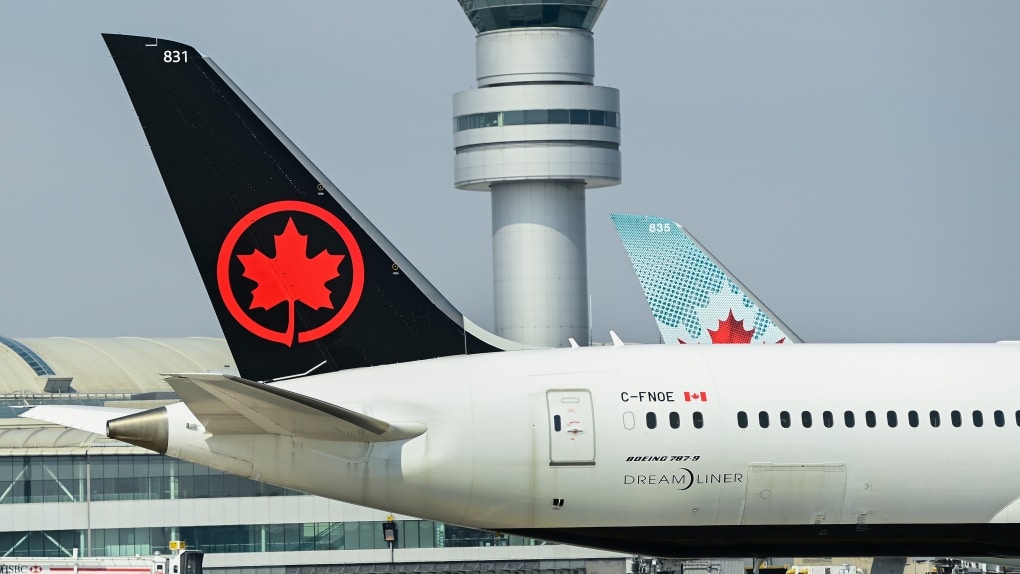Tensions are rising as a potential pilot strike or lockout at Canada’s largest airline is just days away, with no signs of progress in negotiations.
Several business groups, including the Canadian Chamber of Commerce, are planning an event in Ottawa today to push the government to act after calling for binding arbitration in an open letter.
Air Canada announced earlier this week that a work stoppage is becoming increasingly possible as negotiations with the union continue to stall.
According to the Canadian Press, unless an agreement is reached, either party may issue a 72-hour strike or lockout notice as early as Sunday, potentially leading to a complete work stoppage as early as September 18.
Air Canada said Monday that an agreement is still possible if the Air Line Pilots Association reduces its “excessive” compensation expectations.
The union claimed that corporate greed was stifling negotiations, as Air Canada continues to generate record profits while expecting pilots to accept below-market pay.
According to a new assessment by the Fédération des caisses Desjardins du Québec, the anticipated labour disruption at Air Canada may cost the economy $1.4 billion.

Canada’s Largest Airline
Economists Randall Bartlett and LJ Valencia predict that a two-week pilot strike at Canada’s largest airline might result in daily losses of approximately $98 million, a 0.06 percent month-over-month loss to real GDP in September.
“Because of its outsized role in the Canadian airline market, a prolonged pilot strike could negatively impact economic activity,” according to the researchers.
The number of passengers could fall by 2.1 million, a 29% decrease from the previous month, they said.
Air Canada and Air Canada Rouge operate around 670 daily flights, carrying more than 110,000 passengers throughout Canada and overseas it is Canada’s largest cargo airline in terms of capacity.
Business organisations expressed “deep concern” on Wednesday about the upcoming pilot strike, claiming it will drastically disrupt Canada’s supply chain.
“The potential for a labour disruption is alarming, given the far-reaching implications for Canadians, the nation’s economy, supply chains, and our global reputation,” stated a letter signed by 41 business groups and 53 local chambers of commerce.
The group planned to attend a press conference in Ottawa on Thursday to encourage the federal government to take measures to avoid potential labour disruptions.

Last Air Canada pilot strike
The Desjardins economists said their estimate envisions a two-week strike, similar to the last significant Air Canada pilot strike in September 1998. Air Canada’s losses were projected at $200 million at the time, which is equivalent to $355 million now.
Meanwhile, NDP leader Jagmeet Singh told reporters on Thursday that we will “never support” back-to-work legislation as an Air Canada pilot strike approaches and concerns rise over a work stoppage.
“We’re going to send a clear message again that we are opposed to Justin Trudeau and the Liberals, or any government, interfering with workers,” he said during his party’s caucus conference in Montreal.
Singh continued, “If any proposals relating to back-to-work legislation are tabled, we would reject them. We’ll fight back against that. We will never support back-to-work.
Unless a deal is reached by Sunday, Air Canada or the Air Line Pilots Association (ALPA), which represents 5,200 Air Canada pilots, may issue a 72-hour lockout or strike notice.
Air Canada president and CEO Michael Rousseau said in a statement that there was still time to negotiate an agreement with the pilots, and that the company will do all possible to safeguard its customers from a more inevitable work stoppage.
Air Canada Express flights will continue to operate, with third-party carriers Jazz and PAL Airlines providing these services. However, these regional partners transport only around 20% of Air Canada’s daily clients, with many of them eventually connecting on Air Canada aircraft.
Related News:
VIDEO!! Air Canada Flight to Paris Catches Fire After Takeoff
VIDEO!! Air Canada Flight to Paris Catches Fire After Takeoff









